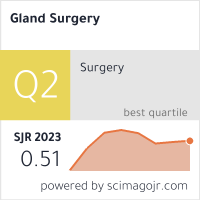ASSESSING THE CORRELATION BETWEEN HBA1C LEVELS AND C-REACTIVE PROTEIN (CRP) IN PATIENTS AT KHAMIS MUSHAIT GENERAL HOSPITAL: A CROSS-SECTIONAL STUDY
Keywords:
HbA1c, C-Reactive Protein (CRP), diabetes management, Khamis Mushait, Saudi Arabia, glycaemic control, public health.Abstract
Introduction: C-reactive protein serves as a primary indicator of systemic inflammation which affects both cardiovascular diseases and metabolic disorders. The primary indicator for tracking blood sugar management is glycated hemoglobin (HbA1c). New studies indicate that long-term inflammation may be connected to substandard blood sugar control. The research seeks to determine how HbA1c and CRP levels correlate within patients treated at Khamis Mushait General Hospital.
Methodology: A cross-sectional study involving 391 participants from Khamis Mushait General Hospital. Researchers gathered information about HbA1c and CRP levels as well as demographic data including age, gender and body mass index (BMI) from the study participants. The research team applied correlation analysis and logistic regression to identify the determinants of glycemic control.
Results: The analysis indicated a moderate positive correlation between HbA1c and CRP levels (r = 0.51, p = 0.042) which suggests that systemic inflammation could contribute to poor glycemic control. An analysis revealed a strong positive relationship between age and HbA1c levels (r = 0.92, p = 0.00), which indicates that people of older age groups experience poorer glycemic control. BMI positively correlates with HbA1c levels (r = 0.32, p = 0.00) which highlights obesity's effect on blood sugar regulation. Research using ANOVA analysis revealed significant links between HbA1c levels and marital status, education level, employment status, BMI, and smoking status with p-values below 0.05 but found no significant connection to gender.
Conclusion: This study underscores the relationship between elevated CRP levels and poor glycemic control suggesting the potential use of CRP as an alert marker for deteriorating diabetes management. It further suggests that CRP testing ought to be part of the management plan of diabetes and underlines the importance of ameliorating inflammation via other means such as lifestyle changes, including exercising and weight reduction.





